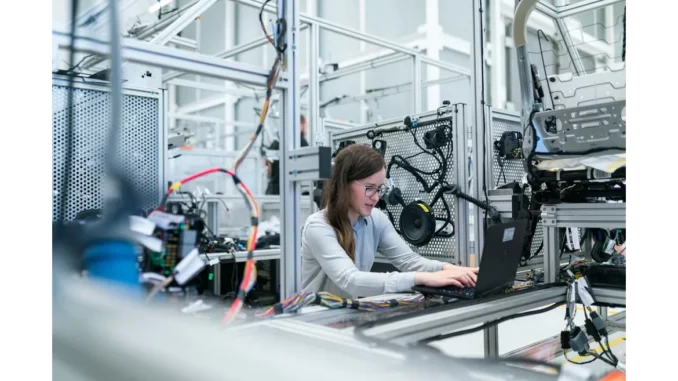
As the landscape of medical technology continues its relentless evolution, considerable anticipation surrounds Perimeter Medical Imaging AI’s forthcoming announcement regarding the topline results from their pivotal study on the B-Series OCT system integrated with ImgAssist AI. I recently had the privilege of engaging in a conversation with Dr. Emily Carter, an experienced oncological surgeon and a key participant in this clinical trial, to explore her insights and experiences with this groundbreaking technology. Our discussion offered an enlightening view into how this advancement could potentially revolutionise breast-conserving surgeries.
Dr. Carter, exuding her characteristic poise, welcomed me into her office, which was tastefully decorated with medical journals and framed accolades. As we began our discussion, she shared her experience with the Perimeter B-Series OCT system, an investigational device that marries the capabilities of optical coherence tomography with artificial intelligence. “The excitement for the results is quite palpable,” she remarked, her tone brimming with sincere enthusiasm. “We’ve been utilising the B-Series OCT system for a while now, and its potential is truly remarkable.”
The B-Series OCT system is engineered to deliver real-time, high-resolution cross-sectional images of excised tissues, a critical capability during breast-conserving surgeries. Dr. Carter elaborated on how this technology could substantially reduce the necessity for re-excisions, a prevalent challenge in the field. “Ensuring all cancerous tissue is excised while preserving as much healthy tissue as possible is one of the most challenging aspects of breast-conserving surgery. The B-Series OCT system, bolstered by its AI component, offers a level of precision that is unprecedented,” she observed with keen insight.
As our conversation deepened, Dr. Carter elucidated the significance of ImgAssist AI, a pivotal feature of the B-Series system. “The AI component functions as an additional set of eyes in the operating room,” she explained. “It aids in interpreting the intricate images produced by the OCT system, providing surgeons with crucial information in real-time. This has the potential to be a game-changer in ensuring that surgical margins are free of cancerous cells.” Her enthusiasm was contagious, and it was evident that this technology had made a substantial impact on her practice. Nevertheless, Dr. Carter prudently tempered expectations. “While the initial results are promising, it’s crucial to await the topline results from the study to comprehensively understand the impact and efficacy of this technology,” she advised with a measured tone.
Perimeter Medical Imaging AI, with headquarters in Toronto and Dallas, stands at the forefront of developing advanced imaging tools to address unmet medical needs. The B-Series OCT system, still in investigational use, has garnered significant support through a substantial grant from the Cancer Prevention and Research Institute of Texas, highlighting the broader medical community’s confidence in this technology.
Discussing the broader implications of the study, Dr. Carter underscored the importance of such advancements for patient outcomes. “Ultimately, our efforts are dedicated to benefiting our patients. Reducing re-excision rates not only enhances cosmetic outcomes but also alleviates the psychological burden on patients grappling with a cancer diagnosis,” she reflected thoughtfully.
The medical community eagerly awaits the announcement slated for 20th November, with Perimeter Medical Imaging AI planning a webcast and conference call to follow—a testament to the results’ significance for stakeholders and the broader medical community. Dr. Carter’s insights weave a compelling narrative of hope and progress. As someone who has directly experienced the potential of the B-Series OCT system with ImgAssist AI, her optimism is firmly rooted in experience and a commitment to enhancing surgical outcomes. “We are on the brink of something truly revolutionary,” she concluded, her eyes reflecting a blend of hope and determination.
As our conversation concluded, it became apparent that the pending results from the study represent not merely a milestone for Perimeter Medical Imaging AI but also a potential leap forward in the realm of breast cancer surgery. For patients and medical professionals alike, the promise of technology that heightens precision while reducing the need for additional surgeries is a thrilling prospect. The announcement on 20th November is poised to be a pivotal moment, and as the medical community and stakeholders gear up to tune in, one cannot help but share in the anticipation for what may well be a transformative advance in the fight against breast cancer.


Be the first to comment